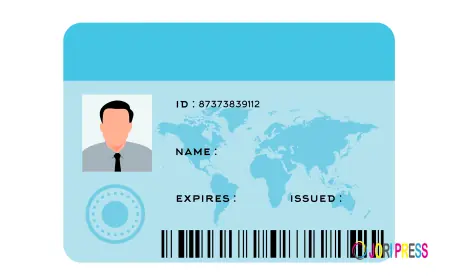Casino Iceland: Exploring the Unique Gambling Landscape of the Nordic Island
Casino Iceland, a land renowned for its breathtaking natural wonders and vibrant cultural heritage, presents a fascinating paradox when it comes to gambling. Unlike many other countries where casinos are prominent social hubs, Iceland does not host traditional land-based casinos. Instead, the gambling environment here is shaped by stringent laws and an increasing shift toward online platforms. The evolution of gambling in Iceland illustrates a distinctive Nordic approach — balancing public welfare concerns with modern digital trends. This article will explore the various facets of the casino scene in Iceland, including the legal framework, the rise of online gambling, societal impacts, and future perspectives.
The Legal Framework of Gambling in Iceland: Restrictions and Exceptions
One of the defining features of Iceland’s gambling landscape is its highly restrictive legal environment. The Icelandic government has historically taken a cautious approach toward gambling, largely influenced by concerns over gambling addiction, financial security, and social well-being. As a result, physical casinos — those grand establishments filled with slot machines, poker tables, and roulette wheels — are outright banned in the country.
This legal stance stems from a strong public consensus emphasizing social responsibility. Icelandic lawmakers prioritize minimizing the potential harms gambling could bring to vulnerable groups within the population. Consequently, only limited forms of gambling activities are permitted under Icelandic law. The legal exceptions primarily include state-licensed lotteries and sports betting, which are closely regulated to ensure transparency and fairness. These activities often operate under government oversight or through authorized organizations, preventing illegal gambling from gaining traction.
The prohibition on land-based casinos and other games of chance like private poker tournaments reflects Iceland's commitment to controlling gambling's societal impact. Furthermore, unregulated or underground gambling operations are illegal and subject to strict penalties. This rigorous legal environment creates a landscape where traditional casinos simply do not exist, leaving Icelanders with few options for physical gambling entertainment within their own borders.
The Rise of Online Gambling in Iceland: A Digital Shift
Despite the absence of land-based casinos, Iceland is witnessing a robust growth in online gambling. This expansion mirrors global trends, where digital technology has revolutionized how people engage with gambling activities. Icelandic players increasingly turn to online platforms to enjoy casino games, sports betting, and poker. This rise is facilitated by Iceland’s excellent internet infrastructure and high digital literacy rates, which allow residents to access a variety of gambling sites from the comfort of their homes.
The proliferation of online gambling is significant because it introduces new challenges for Icelandic regulators and policymakers. Unlike physical casinos that can be tightly controlled and licensed, online gambling often transcends national borders, making enforcement of local gambling laws complex. Many Icelandic players participate in international online casinos that operate beyond Icelandic jurisdiction, which raises questions about consumer protection, fairness, and problem gambling management.
To mitigate potential risks, Icelandic authorities encourage responsible gambling by promoting awareness campaigns and supporting organizations focused on gambling addiction prevention. Nonetheless, the rapid growth of online gambling presents an evolving landscape that Iceland continues to navigate cautiously. While the country maintains its traditional ban on physical casinos, the virtual realm of online gambling has become an important outlet for gaming enthusiasts.
Popular Online Casino Games Among Icelandic Players
The types of games favored by Icelandic gamblers reflect broader international preferences, with many players attracted to the excitement and variety offered by online platforms. Slot machines, also known as video slots, are extremely popular due to their simplicity and entertaining themes. These games combine colorful graphics, sound effects, and the chance to win jackpots, making them appealing for casual and seasoned gamblers alike.
Table games such as blackjack, roulette, and baccarat also enjoy considerable popularity. Online casinos often feature live dealer versions of these games, where players interact with real dealers via video streaming. This immersive experience replicates the ambiance of a physical casino, appealing to those who seek more social interaction during their gameplay.
Poker remains another favored game among Icelanders, particularly in its online tournament formats. The competitive nature of poker combined with the strategic elements of the game draws many players who enjoy testing their skills against opponents worldwide. Sports betting is likewise prevalent, with Icelandic enthusiasts placing wagers on football, basketball, and other international sports events.
Cultural Perspectives: Gambling and Icelandic Society
Gambling in Iceland is shaped not only by legal and technological factors but also by the cultural attitudes of its people. Icelanders generally exhibit a cautious view of gambling, influenced by the country’s strong social values that emphasize community welfare and responsible behavior. This perspective partly explains why gambling regulations are strict and why the government intervenes actively in the gambling market.
The absence of physical casinos means that gambling does not form a visible part of everyday social life, unlike in many other countries where casinos are entertainment centers and tourist attractions. This separation reduces the normalization of gambling and its visibility in public spaces, contributing to the low prevalence of gambling problems reported in Iceland.
At the same time, Icelandic society is open to innovation and technological advancement, which explains the enthusiasm for online gambling despite the general wariness about the activity. The younger generations, in particular, have embraced online casinos and betting sites, often viewing them as a form of entertainment rather than a potential risk. However, ongoing public education campaigns seek to balance this enthusiasm with awareness about gambling addiction and responsible gaming practices.
The Impact of Tourism on Gambling in Iceland
Tourism is a significant economic driver for Iceland, attracting millions of visitors annually who come to explore its natural wonders like glaciers, volcanoes, and geothermal springs. However, when it comes to gambling, tourists encounter the same legal restrictions as locals regarding physical casinos. Visitors looking for casino entertainment must often turn to online platforms or travel to neighboring countries where casinos are legal.
While Iceland does not currently have land-based casinos, there have been periodic discussions about the potential economic benefits of introducing such venues, especially in popular tourist areas. Proponents argue that casinos could create jobs, stimulate local economies, and enhance the tourism experience. Opponents, however, emphasize the social risks and the potential strain on public health resources.
As of now, the consensus leans toward maintaining the status quo, with tourism continuing to thrive on Iceland’s natural and cultural assets rather than gambling facilities. This approach aligns with Iceland’s broader values and policy priorities.
Responsible Gambling Initiatives in Iceland
Given the increasing accessibility of online gambling, Iceland places considerable importance on responsible gambling initiatives. Government agencies, non-profits, and healthcare providers collaborate to develop programs that promote safe gambling behaviors. These include educational campaigns that inform players about the risks associated with excessive gambling and resources that offer support for those experiencing gambling addiction.
Icelandic authorities have also explored the idea of implementing technological tools such as self-exclusion programs and betting limits on online platforms accessible to Icelanders. While the implementation of such measures faces challenges due to the cross-border nature of online gambling, efforts continue to adapt regulatory frameworks to better protect consumers.
The emphasis on responsibility reflects Iceland’s commitment to balancing individual freedoms with collective well-being, ensuring that gambling remains a controlled and manageable form of entertainment.
Future Outlook: The Evolution of Casino Gambling in Iceland
Looking ahead, the casino landscape in Iceland is poised to remain unique and dynamic. While physical casinos are unlikely to appear soon due to entrenched legal and cultural barriers, the expansion of online gambling will continue to shape how Icelanders engage with casino games and betting.
Technological advancements such as virtual reality (VR) casinos and blockchain-based gaming may further transform the online gambling experience, offering even more immersive and secure platforms for players. Icelandic regulators will need to keep pace with these innovations to ensure they align with the country’s social policies and protective measures.
Additionally, as global discussions about gambling regulation evolve, Iceland may reassess certain policies to better integrate the digital gambling market into its legal system. However, the core values prioritizing social responsibility and public health are expected to remain at the forefront of any future developments.
Conclusion
Casino Iceland presents a fascinating case study of how a nation can balance cautious regulation with the demands of a modern digital society. With no land-based casinos allowed, Iceland relies on strict laws and limited permitted gambling activities to safeguard its citizens. At the same time, the rise of online gambling offers new opportunities and challenges, reflecting global trends adapted to Iceland’s unique context.
Understanding Iceland’s gambling scene requires appreciating its legal framework, cultural attitudes, and technological adaptation. Iceland’s experience highlights that gambling policies are deeply intertwined with societal values and that successful regulation involves careful consideration of both opportunity and risk.
While traditional casinos remain absent, the evolving world of online gambling ensures that Icelandic players continue to enjoy the excitement of casino games — all within a landscape shaped by responsibility, innovation, and a distinct Nordic ethos.
What's Your Reaction?
 Like
0
Like
0
 Dislike
0
Dislike
0
 Love
0
Love
0
 Funny
0
Funny
0
 Angry
0
Angry
0
 Sad
0
Sad
0
 Wow
0
Wow
0















































